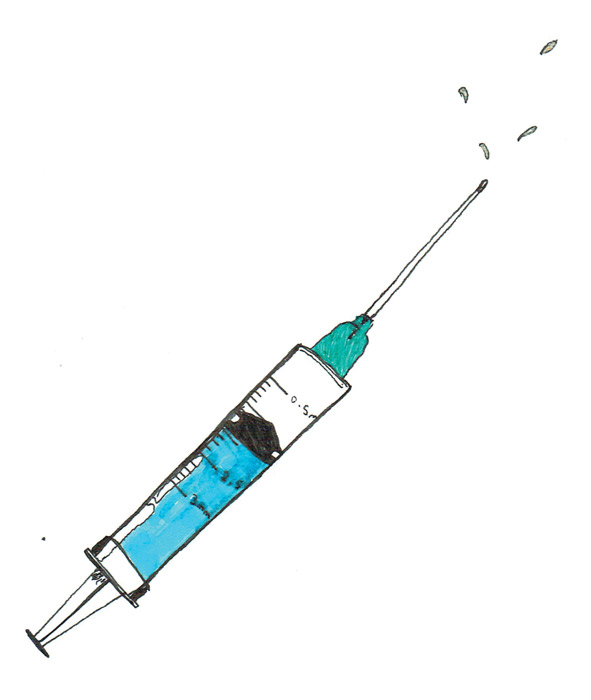The Medical Students’ Society (MSS rareDIG) commemorated Rare Disease Day on Feb. 28 with a cocktail event and speaker series in the McIntyre Medical Building. Rare diseases are defined as those which affect fewer than one in 2,000 people, which often makes finding treatment for them more difficult than it is for common illnesses.
Eight McGill students founded rareDIG in 2017—two of whom have rare diseases themselves—and joined activists in over 80 countries around the world to raise awareness for the millions of individuals affected by rare diseases.
The first speaker was Natalie Cinman, a patient of Osteogenesis Imperfecta (OI), also known as brittle bone disease. Cinman explained that this disease is associated with a collagen deficiency, which leads to fragile bones and increased risk of fractures. As a result, she was in and out of Montreal’s Shriners Hospital frequently as a child.
“At Shriners, what was great is that not only did [the medical staff] know how to care for me, but it was a support system and they became a family,” Cinman said. “You know everybody, and they know you, and they know how to take care of you.”
However, once she was transferred to an adult hospital, Cinman found that the healthcare services were not as accommodating as at Shriners. Cinman encourages those suffering from rare diseases to express their medical needs to their healthcare specialists.
“I think it is really important for someone with a rare disease to not be shy,” Cinman said. “We need to be the best advocate for our own medical care.”
Joseph Galli–director of the Loeys-Dietz Syndrome (LDS) Foundation of Canada (LDSF Canada)–and his wife Johane gave the second talk. Galli co-founded LDSF Canada in 2011 following his wife and children’s diagnosis with the disease, which affects connective tissues in many parts of the body and causes premature fusion of skull bones, abnormal scarring, and enlargement of blood vessels. LDSF Canada aims to implement a multi-year strategic plan to raise awareness, drive research, and provide support for patients and their families affected by LDS. One of its main goals is to encourage young scientists to take an interest in rare diseases.
“If we were to do a series of grants to young investigators, give them $25,000 for something that was a little outside the box, and then help them with collaborations and getting other grants, eventually, they can make a difference on a global scale,” Galli said. “The idea is to give a whole bunch of young people who have good ideas money and the opportunity to collaborate with other people around the world.”
The series’ third speaker, Adrian Thorogood, a lawyer and academic associate at the Centre of Genomics and Policy at McGill, suggested to clinicians and researchers the promise of using big data to combat rare diseases. Thorogood emphasized that, given the unlikeliness of encountering rare diseases, it is crucial for medical professionals to share what they with each other.
“To establish large enough data sets to better understand the cause of disease, there needs to be collaboration,” Thorogood said.
Eric Shoubridge, a professor and chair of the Department of Human Genetics at McGill, was the final speaker. Shoubridge explained that the peculiarities of rare diseases can provide knowledge about generating a treatment for more common diseases.
“By studying rare diseases, you can figure out how physiology works, how biochemistry works, how the body works,” Shoudbridge said. “Many rare diseases have led to insights into more common forms of disease.”









